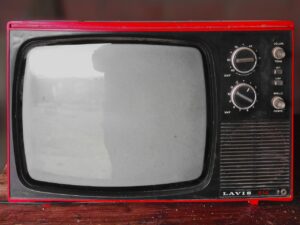CBS recently announced that The Late Show will end its run in 2026. There won’t be a new host stepping in. No rebrand. No reboot. Just… the end. It hit me harder than I expected — not because I’m still up every night watching, but because I remember when late night television wasn’t just background noise. It was appointment viewing. It was magic. And for me, it was personal.
I grew up in the golden era of late night — the 1980s and ’90s — when The Tonight Show still had that big band swagger, and Johnny Carson ruled with equal parts charm and control. Johnny wasn’t just a host; he was an institution. With his perfect timing, Midwestern grace, and an eyebrow that could say more than a monologue, he made you feel like everything was going to be okay — even when the world felt chaotic. Maybe it was his Nebraska roots, but there was something familiar about him. He felt like someone your parents would trust. Someone you wanted to impress.
Of course, my favorite was David Letterman. That dry wit, the ironic detachment, the feeling that he might at any moment blow the whole thing up just to see what would happen. As a fellow Hoosier and Ball State grad, he felt like ours in a way no New York or L.A. personality ever could. He brought the same kind of absurdity and edge that made you feel like you were in on some secret joke the grownups didn’t get. His comedy was smart, weird, and unapologetically Indiana.
Before I had a TV of my own, I’d sneak out of bed after lights-out, crawl into the living room, and lay on the floor behind the recliner — hidden from the hallway — just to catch a few minutes of Carson or Letterman. Later, when my aunt and uncle downsized and gave me their old 13″ black-and-white set, I had a direct line to the night world. I’d lay in bed with the glow of that little screen lighting up my ceiling, soaking in monologues like they were gospel from the coolest kid in class.
And it wasn’t just the big names. Later… with Bob Costas was a quiet gem — thoughtful conversations that felt more like midnight radio than late-night comedy. Tom Snyder had that strange, unpredictable energy that made his interviews compelling, even when you didn’t care about the guest. Conan O’Brien brought the surreal and silly, and Craig Ferguson turned the genre upside down with his open honesty and gleeful disregard for the usual structure.
Even Dennis Miller, with his mile-a-minute monologues packed with obscure references and SAT-level vocabulary, taught me something — namely, how to keep a dictionary nearby. This was pre-internet, when you couldn’t just Google “who was Horace Greeley?” and get an instant answer. Miller made me reach. He made me curious.
That’s what late night was. It wasn’t just laughs — though there were plenty of those. It was culture, conversation, curiosity. It was comfort when the house was dark and quiet. It was connection before social media. For a kid in Southeastern Indiana, it felt like a lifeline to something bigger.
Now, with the end of The Late Show, another piece of that era slips away. And maybe that’s just how time works. But I can’t help feeling nostalgic for a flickering black-and-white screen, a well-timed monologue, and the sense that, somehow, those guys on TV understood me — and made me want to understand the world just a little more.
Late night is turning off the lights. But I’ll always remember what it felt like to stay up past my bedtime, just to listen.


